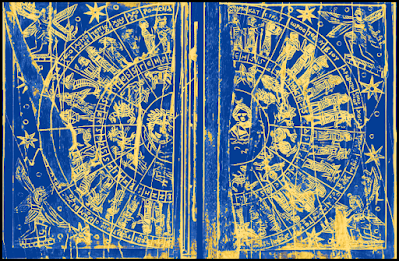Book review: Mystic Secrets of Mind and Power (1942)
Hoodoo’s golden age (the early 1900’s) left us a number of valuable books. Arguably the least known is a curious 63 page text, titled Mystic Secrets of Mind and Power: The Key to Success, anonymously published in 1942. This is an extremely obscure work; the sole reference I found was in Robert Tallant’s Voodoo in New Orleans, and couldn't even locate the original publisher. Consequently, I decided to highlight it here, that it may become better known.
The anonymous author may have been any of the early prolific writers on Hoodoo listed here, but his/her identity remains a mystery.
Mystic Secrets is a guidebook to psychological self improvement, inspired by New Thought, with a section on the virtues of herbs and substances commonly used in rootwork, a table of lucky and unlucky days, and a chapter on prayer.
The first few chapters address methods for overcoming fear (especially irrational fear), with useful techniques, such as shifting the mind’s focus to physical activities, and repeating short prayers over and over like a mantra:
If the thoughts which are
bothering still continue, try to think of other things. Think about the things
you have done that day or the day before. Think about what you had to eat or
expect to eat at your next meal Keep your mind away . from whatever is
tormenting it. Should you still be tormented by your imagination, then it is
well to repeat certain words which will have a tendency to clear the mind and
to free it from the thoughts which are giving you trouble (…)Your words should
be in the form of a prayer. If your prayer is fervent and if you really want
your mind cleared of fear, your wish will be accomplished.
Chapter IV then suggests delving into the root of the reader’s fears, and proposes using the virtues of traditional Hoodoo materia (five finger grass, High John the Conqueror root, lodestones, &c):
Five Finger Grass is another generally used herb which many claim is quite valuable for warding off evil, spirits. One favorite method of using this herb is to hang it over the bedstead. This is claimed to bring restful sleep.
Chapter V focuses on improving one’s confidence, by gradual self-conditioning.
Chapter VI expands on this topic, by suggesting working on one’s appearance and general demeanor toward others.
Chapter VII lists lucky and unlucky days.
Chapter VIII outlines useful techniques of verbal suggestion we can use to endear ourselves to others, and better persuade them:
When a great army commander has a particularly hard and dangerous task to be done he asks for volunteers, he does not assign the task to his men by command. He has the right of life or death over his troops and could, if he desired, assign any task to his men. He prefers, however, to ask for volunteers because he knows that the men who step forward will perform the duties assigned to them much more fearlessly and much more efficiently because, through the POWER of suggestion, he has made them feel that they are doing something that cannot be trusted to any other men.
Chapter IX addresses the power of prayer, and provides a translation of the Lorica, a beautiful Irish protective litany, to be recited daily.
Finally, chapter X provides an overview and recap of the whole book.
____________
Although most of the information in this book can be found in other texts, I still enjoyed it and found it inspiring. The self-therapy methods are solid, and address common issues that anyone can fall prey to.
The section on Hoodoo materia, although short, provides a few new uses I wasn’t aware of for the listed substances. I was also unfamiliar with the Lorica prayer, and was delighted to discover it in this book.
Original copies of the text are impossible to find, but it has been reprinted in newer editions available on Abebooks and Amazon at a reasonable price.




Comments
Post a Comment